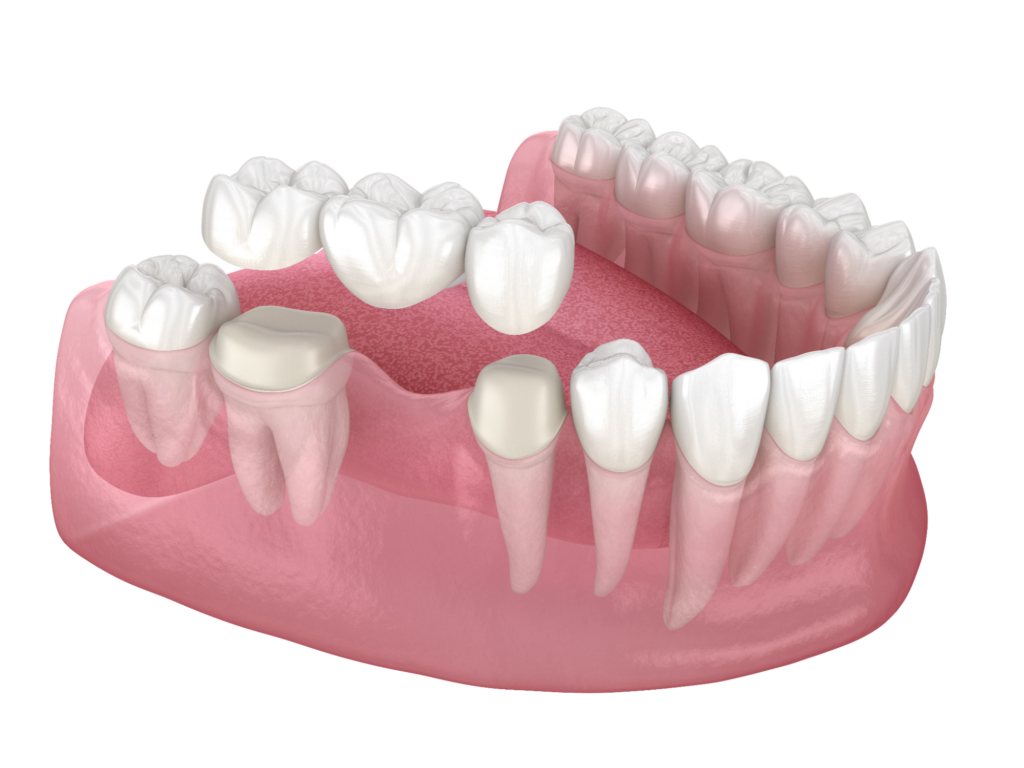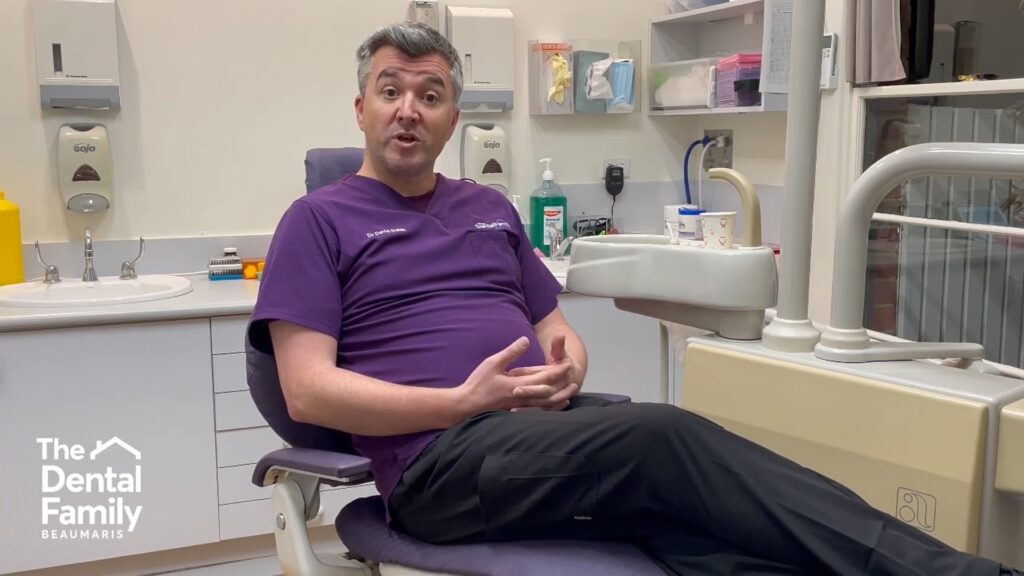Healthy gums are crucial for maintaining overall oral health. However, there are instances when your gums can become swollen and tender, particularly around a specific tooth. This localised swelling can cause discomfort and indicate an underlying dental issue that requires attention. So if you are struggling with a swollen gum around one tooth, read on to find out the potential causes and explore preventive measures to help you maintain optimal gum health.
Causes of Swollen Gums Around One Tooth
Localised swelling around a specific tooth can stem from various reasons. These may include:
Gum Disease
Gum disease, also known as periodontal disease, is a common cause of swollen gums. It occurs due to plaque and bacteria buildup along the gum line, leading to inflammation and infection. If left untreated, the infection can progress, causing the gums to recede, teeth to become loose, and potentially resulting in tooth loss.
Dental Abscess
A dental abscess is formed when there is a bacterial infection at the root of a tooth or within the gum tissue. It typically starts as tooth decay or a dental infection that progresses deeper into the tooth or surrounding gums. Bacteria multiply and cause inflammation, leading to the formation of a pocket of pus. As the infection progresses, pressure builds up, resulting in localised gum swelling. If left untreated, the abscess can cause severe pain, damage surrounding tissues, and potentially spread to other parts of your body.
Dental Trauma
Injuries to the tooth, such as fractures, cracks, or trauma from accidents, can lead to localised gum swelling. It occurs as a result of the body’s natural inflammatory response to the injury, causing increased blood flow and fluid accumulation in the surrounding gum tissue.
Poor Oral Hygiene
Inadequate brushing and flossing allow plaque, a sticky film containing bacteria, to accumulate on the teeth and along the gumline. When plaque is not properly removed, it hardens into tartar, which provides a favourable environment for more plaque to build up. This leads to the release of toxins by the bacteria, triggering gum irritation, inflammation, and swelling.
Allergic Reaction
When a person with a specific allergy comes into contact with an allergen, such as certain foods, medications, or oral care products, their immune system recognises it as a threat. In response, the immune system releases histamines and other chemicals, triggering an inflammatory response. This inflammation can affect the gums, leading to localised swelling. The severity of the reaction can vary from mild to severe, and individuals with known allergies need to avoid their allergens to prevent gum swelling and other allergic symptoms.
Hormonal Changes
Hormonal fluctuations during pregnancy or menstruation can lead to increased blood flow and changes in the oral environment, making the gums more susceptible to inflammation. This hormonal imbalance can cause swollen gums around a specific tooth, which typically resolves after the hormonal changes stabilise.
Remember, identifying the cause of swollen gums is essential for receiving the appropriate treatment. When you notice any swelling or discomfort around a specific tooth, make sure to consult with your dental practitioner. They can conduct a thorough evaluation and create a personalised care plan tailored to your specific needs.
Prevention of Swollen Gum Around One Tooth
Practising good oral hygiene habits and maintaining a consistent dental care routine are essential for preventing swollen gums.
- Brush your teeth at least twice daily with a soft-bristle toothbrush and fluoride toothpaste.
- Don’t forget to floss daily to remove plaque and debris between your teeth and along the gumline.
- A balanced diet rich in vitamins and minerals contributes to overall gum health. Limit sugary and acidic foods and beverages, as they can promote plaque buildup and increase the risk of gum disease.
- Avoid smoking or using tobacco products, as they can worsen gum inflammation and compromise oral health.
- Regular visits to the dentist are crucial for maintaining optimal gum health. Schedule dental check-ups every six months or as recommended by your dentist.
- Professional cleanings help remove plaque and tartar buildup that brushing and flossing alone cannot eliminate.
By following these preventive measures, you can significantly reduce the risk of developing swollen gums around a specific tooth and promote overall oral health. Remember, early detection and intervention are key in preventing gum-related problems from progressing into more serious dental issues.
Treatment Options for Swollen Gum Around One Tooth
When dealing with a swollen gum around a single tooth, various treatment options are available to address the underlying cause and alleviate the discomfort. Here are some possible treatment options that your dentist may recommend:
Professional dental cleaning
Thorough dental cleaning by a professional is highly effective in combating gum inflammation by addressing the root cause – plaque and tartar buildup. These substances accumulate along the gumline, providing a breeding ground for bacteria that trigger inflammation. By skillfully removing plaque and tartar through professional cleaning, the source of irritation is eliminated, allowing the gums to heal and reducing swelling.
Antibiotics to treat infection
If the swelling is due to an infection, such as a dental abscess, your dentist may prescribe antibiotics. It will help eliminate the bacteria causing the infection, promoting healing and reducing gum swelling.
Antiseptic mouthwash or oral rinse
An antiseptic mouthwash or oral rinse, recommended by your dentist, reduces bacteria, alleviates inflammation, and promotes gum healing. These products have antimicrobial properties that eliminate harmful bacteria, reducing the risk of infection and inflammation. In addition, rinsing with warm salt water provides temporary relief for swollen gums by soothing tissues and reducing swelling. The saltwater rinse acts as a mild antiseptic, cleansing the area and promoting oral health.
Dental procedures such as root canals or tooth extraction
In cases of severe tooth decay or damage that result in swelling of the gums, a root canal treatment may be recommended by your dentist. This procedure involves removing the infected tissue within the tooth, eliminating the source of inflammation and preventing the spread of infection. However, in certain situations where the tooth cannot be effectively restored or poses a risk to adjacent teeth, tooth extraction may be necessary. Your dentist will carefully evaluate your specific condition to determine the most appropriate treatment option for your case.
Take Charge of Your Gum Health Today!
To wrap it up, swollen gums around a single tooth can be indicative of various underlying causes, and identifying the specific cause is crucial for determining the appropriate treatment and management. At The Dental Family Beaumaris, we understand the importance of addressing these issues and providing comprehensive care to our patients. With a focus on your oral health, our experienced team takes a personalised approach to diagnose the underlying cause of your swollen gums and develop a tailored treatment plan. From professional dental cleanings and preventive measures to advanced procedures such as root canals or extractions, we are committed to restoring your gum health and enhancing your overall well-being.
Schedule an appointment with us today and take the first step towards healthier, happier gums and a beautiful smile.



